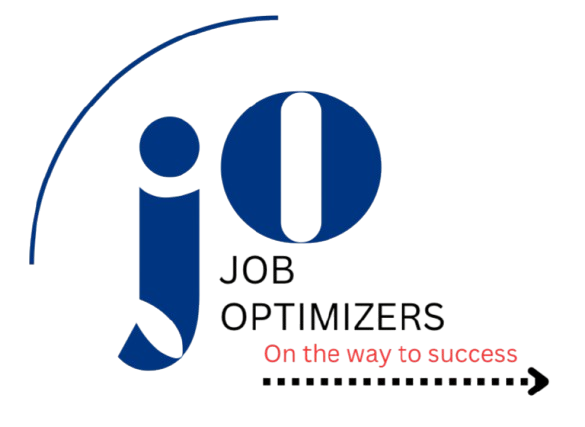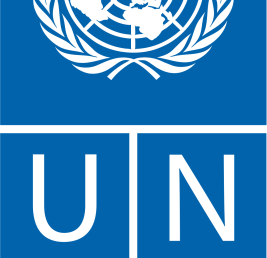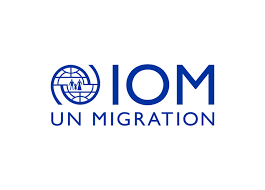Job Detail
-
Job ID 19924
-
Offered Salary 0
-
Career Level Entry-level
-
Experience 3 Years
-
Gender Male/Female
-
Industry Leadership
-
Qualifications Degree Bachelor
Job Description
Private Sector Analyst
Algeria, the largest country in Africa, is particularly vulnerable to the effects of climate change due to its location and high exposure to them. In just a few decades, temperatures have increased by 1.5 and 2°C, while precipitation has decreased significantly, with an average rate of 20%. In addition, Algeria is facing other effects of climate change, including an increase in natural disasters such as drought and floods, and a growing increase in forest fires and desertification. Algeria is also experiencing an increase in heat waves, a northward shift of tropical diseases, and a higher incidence of waterborne and airborne diseases, which poses a threat to public health. On the other hand, Algeria’s vulnerability to climate change is likely exacerbating existing economic difficulties related to the oil crisis and is affecting the country’s water resources, particularly affecting the agricultural and industrial sectors, posing a considerable risk to be considered.
To cope with this change and the medium- and long-term effects it induces, it is necessary for the country to develop adequate adaptation mechanisms to adjust its ecological, social and economic practices to successfully moderate and mitigate the potential damage they could cause. To do this, a national adaptation plan must be developed, a plan that will contain the general guidelines for successful adaptation. In 2018, the Algerian Government launched its national adaptation planning process in alignment with national priorities in terms of combating climate change and in accordance with Algeria’s Nationally Determined Contribution. This plan primarily aims to develop strategies to better protect populations, ecosystems and infrastructure from the risks of climate change.
The project “Advancing the National Adaptation Plan process in Algeria to meet short- and medium-term adaptation needs and lay the foundations for long-term adaptation” is part of the country’s commitment through its National Strategy for the Environment and Sustainable Development (2020-2035), its National Action Plan for the Environment and Sustainable Development (PNAEDD) and its National Climate Plan (PNC) and aims to support Algeria in its strategic planning and engage stakeholders in the design of an adaptation plan consistent with national challenges. This project, which is implemented in partnership with the National Agency for Climate Change, also facilitates the development of a country program, which includes programming priorities for adaptation and mitigation.
The project aims in particular to accelerate the integration of adaptation considerations into planning processes in Algeria in order to reduce vulnerability to climate change. Specific objectives include:
- Promoting the idea of having a society and economy resilient to the harmful effects of climate change;
- Strengthening the resilience of ecosystems, in order to minimize the risks of natural disasters linked to the harmful effects of climate change.
- Fight against erosion and promotion of land rehabilitation, within the framework of the Algerian policy to combat desertification;
- Integrating the effects of climate change into sectoral strategies, particularly in the water resources, agriculture, transport and health sectors.
The objective is supported by the following four expected results:
- Outcome 3.1: Strengthened adaptation planning governance and institutional coordination
- Outcome 3.2: Evidence base produced to design adaptation solutions for maximum impact
- Outcome 3.3: Private sector engagement in adaptation catalysed
- Outcome 3.4: Increased adaptation financing
In light of the above, the UNDP Office in Algiers is considering hiring a private sector specialist to support the implementation of activities under Result 3 of the project aimed at catalyzing private sector engagement in adaptation as part of the implementation of the project “Advancing the National Adaptation Plan process in Algeria to meet short- and medium-term adaptation needs and lay the foundations for long-term adaptation”.
Position Purpose
Summary of key functions:
Under the supervision and authority of the Portfolio Team Leader, and the technical supervision of the Project Coordinator, the Private Sector Specialist will provide technical expertise to ensure the successful implementation of the activities of Result 3 of the project.
The specialist will work closely with the Nature, Climate and Energy portfolio team, UNDP management, as well as staff from operations, human resources, finance, and project management units. They will also interact with national implementing partners and colleagues from other UNDP offices as appropriate.
More specifically, the specialist will be responsible for ensuring the following:
-
- Management and implementation of activities : Ensure the implementation of activities included in the framework of Result 3 of the project, in accordance with the defined objectives, ensuring their execution within the specified timeframes. The specialist must ensure the alignment of actions with the required norms and standards, in coordination with national and international partners.
- Technical and analytical support : Identify opportunities for integrating the private sector into climate change adaptation by studying current trends in sustainable investment, circular economy, and green economy. It will analyze the financial mechanisms that promote this involvement and propose strategic recommendations adapted to the national context.
- Partnership Development : Strengthening synergies between the public and private sectors to create opportunities for cooperation in the field of adaptation. In collaboration with the Algerian Chamber of Commerce and Industry and employer organizations, it will mobilize businesses and facilitate the implementation of pilot projects.
- Communication and Advocacy : Raise awareness among businesses of the challenges and opportunities of climate adaptation by disseminating best practices, organizing events, and drafting strategic reports. It will encourage constructive dialogue between stakeholders to strengthen private sector engagement.
- Monitoring and Evaluation : Measure the impact of activities, adjust strategies as needed, and identify lessons learned. The individual will participate in the development of periodic reports detailing the progress of initiatives and their results in order to optimize private sector engagement efforts.
UNDP adopts a portfolio approach to accommodate changing business needs and leverage linkages across
interventions to achieve its strategic goals. Therefore, UNDP personnel are expected to work across units, functions,
teams, and projects in multidisciplinary teams in order to enhance and enable horizontal collaboration.
Key Duties and Accountabilities
1- Facilitate the integration of the private sector in climate change adaptation strategies
- Identify and analyze opportunities for the private sector to engage in climate adaptation, building on sustainable investment trends and national policies.
- Develop strategic partnerships with businesses, employer organizations and the Algerian Chamber of Commerce and Industry to strengthen their commitment to adaptation projects.
- Ensure the identification of partnership avenues and explore innovative financial mechanisms to encourage the private sector to invest in adaptation solutions.
- Develop and implement pilot initiatives with the companies involved, monitoring them and documenting the results.
2- Support the establishment of a regulatory and incentive framework for the private sector
- Contribute to the development of recommendations aimed at strengthening the institutional and regulatory framework promoting private sector engagement in adaptation to climate change.
- Analyze existing policies and propose improvements to integrate economic and fiscal incentives for companies investing in adaptation measures.
- Ensure close collaboration with national authorities and development partners to promote governance aligned with international climate objectives.
3- Strengthen the capacities of the private sector on adaptation issues
- Organize workshops, training and awareness sessions to inform businesses about the opportunities and challenges associated with adapting to climate change.
- Develop practical tools and guides to help companies identify and implement solutions adapted to their sectors of activity.
- Facilitate the exchange of knowledge and best practices between companies that have already initiated adaptation actions and those wishing to get involved. es9h0zP BIpnb
- Organize awareness-raising and training sessions for businesses to inform them about the challenges and opportunities related to climate adaptation.
- Develop practical tools and guides to help businesses implement adaptation strategies and solutions specific to their sectors
- Facilitate the exchange of best practices by highlighting identified private sector champions through dedicated events and platforms.
4- Ensure monitoring, evaluation and communication of results
- Establish a monitoring and evaluation system to measure the impact of initiatives involving the private sector.
- Compile and analyze collected data to inform progress reports and make recommendations to improve private sector engagement.
- Develop communication materials and disseminate the results obtained in order to increase the visibility of private sector actions in terms of adaptation to climate change.
- Collaborate with media and communications institutions to promote success stories and encourage more businesses to get involved.
The incumbent performs other tasks within the framework of his functional profile, if deemed necessary for the proper functioning of the Office and the Organization.
Supervisory roles: NA
Requirements:
Education
Advanced university degree (Master’s degree or equivalent) in business administration, public administration, finance, economics or related field is required
OR
A first cycle degree (Bachelor’s degree) with 2 years of relevant experience will be duly considered in lieu of a higher university degree.
Experience, Knowledge, and Skills
- Candidates with a Master’s degree (or equivalent) in a relevant field of study are not required to have professional experience.
- Candidates holding a Bachelor’s degree (or equivalent) must have at least two (2) years of relevant professional experience at national or international level in the field of private sector engagement, sustainable development or climate finance.
- Experience in analyzing private sector investment potential and developing strategies to strengthen its involvement in climate change adaptation projects is desirable.
- Proven experience in establishing public-private partnerships and mobilizing businesses around climate and environmental issues.
- In-depth knowledge of financing mechanisms and economic incentives for private sector engagement in climate change adaptation is desirable.
- Experience in project management, including designing action plans, implementing outreach activities and impact evaluation is required.
- Familiarity with international institutions and sustainable development frameworks, including the Sustainable Development Goals (SDGs) and the Nationally Determined Contribution (NDC) is desirable.
- Proficiency in computer tools and office software (MS Word, Excel, PowerPoint) and web-based management systems is required.
- Previous experience in a project funded by an international organization or a United Nations agency is highly desirable.
- Certification in sustainable finance, project management or public-private partnership would be an asset .
Language requirements (Required / Desired)
- Fluency in French and Arabic is required
- Good written and verbal English language skills are desirable
Expected Demonstration of Competencies
Core
Achieve Results:
LEVEL 1: Plans and monitors own work, pays attention to details, delivers quality work by deadline
Think Innovatively:
LEVEL 1: Open to creative ideas/known risks, is pragmatic problem solver, makes improvements
Learn Continuously
LEVEL 1: Open minded and curious, shares knowledge, learns from mistakes, asks for feedback
Adapt with Agility
LEVEL 1: Adapts to change, constructively handles ambiguity/uncertainty, is flexible
Act with Determination
LEVEL 1: Shows drive and motivation, able to deliver calmly in the face of adversity, confident
Engage and Partner
LEVEL 1: Demonstrates compassion/understanding towards others, forms positive relationships
Enable Diversity and Inclusion
LEVEL 1: Appreciate/respect differences, aware of unconscious bias, confront discrimination
Cross-Functional & Technical competencies
Thematic Area
Name
Definition
Business Management
Results-based Management
- Ability to manage programs and projects with a focus at improved performance and demonstrable results
Business Management
Project Management
- Ability to plan, organize, prioritize and control resources, procedures and protocols to achieve specific goals
Business Management
Portfolio Management
- Ability to select, priorities and control the organization’s programs and projects, in line with its strategic objectives and capacity; ability to balance the implementation of change initiatives and the maintenance of business-as-usual, while optimizing return on investment
Business Management
Risk Management
- Ability to identify and organize action around mitigating and proactively managing risks
Business Management
Working with Evidence and Data
- Ability to inspect, cleanse, transform and model data with the goal of discovering useful information, informing conclusions and supporting decision-making
Business Development
Knowledge Generation
- Ability to research and turn information into useful knowledge, relevant for content, or responsive to a stated need
2030 Agenda: Engagement & Effectiveness
Effectiveness
- Project Quality Assurance
Equal opportunity
As an equal opportunity employer, UNDP values diversity as an expression of the multiplicity of nations and cultures where we operate and, as such, we encourage qualified applicants from all backgrounds to apply for roles in the organization. Our employment decisions are based on merit and suitability for the role, without discrimination.
UNDP is also committed to creating an inclusive workplace where all personnel are empowered to contribute to our mission, are valued, can thrive, and benefit from career opportunities that are open to all.
Sexual harassment, exploitation, and abuse of authority
UNDP does not tolerate harassment, sexual harassment, exploitation, discrimination and abuse of authority. All selected candidates, therefore, undergo relevant checks and are expected to adhere to the respective standards and principles.
Probation
For all new UNDP fixed term appointments (FTA), including for staff members being transferred or seconded to UNDP under the Inter-Organization Agreement concerning Transfer, Secondment or Loan of Staff, on an appointment of more than one year, continuation of the appointment beyond the initial 12 months is contingent upon the successful completion of a probationary period.
Right to select multiple candidates
UNDP reserves the right to select one or more candidates from this vacancy announcement. We may also retain applications and consider candidates applying to this post for other similar positions with UNDP at the same grade level and with similar job description, experience and educational requirements.
Scam alert
UNDP does not charge a fee at any stage of its recruitment process. For further information, please see www.undp.org/scam-alert.


